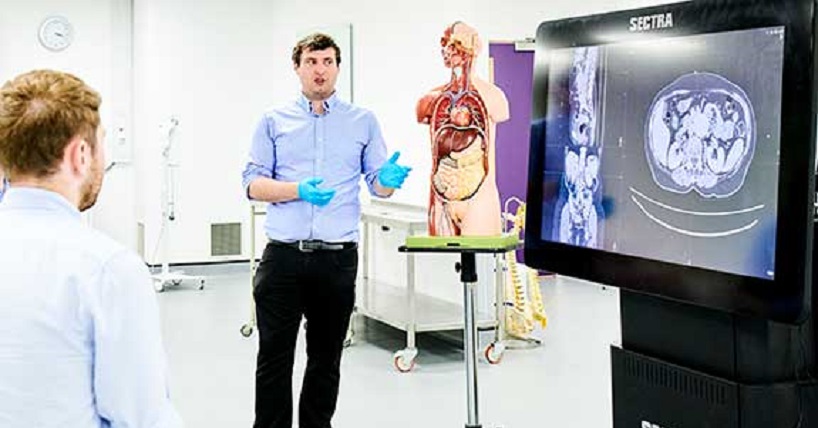Faculty of Medical Sciences
World-leading researchers teaching the medical scientists of tomorrow.
We are the Faculty of Medical Sciences (FMS). We’re one of the UK’s largest and most successful centres for research-led medical education, with a world-class reputation. Our long and proud history has provided a strong foundation for us to grow and innovate. Through this, we revolutionise healthcare, health research and teaching.
Our community
We are a thriving community in FMS. Over 1800 leading scientists, academics, technicians and professional staff help to support over 8000 students. We deliver a wide range of subjects for aspiring clinicians and health professionals. We partner with NHS teaching hospitals, including the Royal Victoria Infirmary and Freeman.
Our international campus, Newcastle University Medicine Malaysia (NUMed) in Johor opened in 2011. It provides identical programmes of study to the UK-based provision. These then lead to the same degrees, conferred by Newcastle University.



